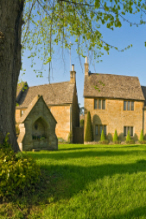Further chinks in the armour of town and village green status
 Polly Reynolds analyses the likely impact of a key Supreme Court ruling on rectification of the register of town and village greens.
Polly Reynolds analyses the likely impact of a key Supreme Court ruling on rectification of the register of town and village greens.
The Supreme Court ruling in Adamson v Paddico; Taylor v Betterment Properties [2014] UKSC 7 has clarified that a lapse of time between registration of a town or village green (TVG) and application for rectification of the register is, on its own, an insufficient ground for opposing rectification. This judgment overturns a 2012 Court of Appeal ruling that a delay in seeking deregistration made it unjust to remove TVG status.
On what basis can a TVG be registered?
The law enabling registration of TVGs is now largely contained in the Commons Act 2006 (the Act). To be registrable as a TVG the land must have been used 'as of right' by a significant number of inhabitants of the local community for lawful sports and pastimes for 20 years or more. The Registration Authority for the area retains the register of TVGs and this is conclusive evidence of the land's status.
How can the register be rectified?
Under section 16 of the Act a landowner can apply to deregister a TVG if it is able to arrange for another piece of suitable replacement land to be registered as a TVG. In most cases this will not be an option for landowners and prospective developers.
It is also possible under section 14 of the Commons Registration Act 1965 for anyone to apply to deregister a TVG if they can show that it was wrongly registered. However, the court will only rectify the register if it is just to do so. Furthermore, no procedure or time limit is set out in the 1965 Act.
What are the grounds for rectification?
The only guidance in the 1965 Act as to the grounds for rectification where a TVG was registered in error is that the court must deem it just to deregister. This creates considerable flexibility for the judiciary to use its discretion when deciding whether to preserve a TVG for the local community or free up the land for development.
Lapse of time
The Supreme Court's February 2014 ruling in Adamson v Paddico; Taylor v Betterment Properties [2014] UKSC 7 established that a delay or 'lapse of time' between registration of a TVG and application for deregistration is not sufficient on its own to make deregistration unjust. It must cause detriment or prejudice.
Lady Hale recognised at least four separate categories of prejudice:
- prejudice to local inhabitants;
- prejudice to other individuals;
- prejudice to public authorities and the public they serve;
- prejudice to the fair hearing of the case.
A lapse of time falls under prejudice to a fair hearing of the case as it can become harder to build a case as time elapses. Local residents, for example, may find it harder to bring evidence of their use of the land many years after it was registered as a TVG. However, the idea that prejudice could be inferred after a certain lapse of time without any evidence was rejected. There should be solid evidence from which inferences of lapse of time prejudice can be made. Lady Hale noted that "the longer the delay, the easier it will be to draw such inferences".
In Betterment, there was a time lapse of four-and-a-half years between registration and application for rectification. In Paddico, 12-and-a-half years had passed since registration. In both cases, the delay was insufficient on its own to prevent rectification and consideration of the wider circumstances was required to determine whether deregistration was just.
Practical implications
This clarification is good news for developers who may have given up on parcels of land which they believe were registered as TVGs in error. Any applications for rectification should nevertheless be submitted in a timely manner to minimise the risk of lapse of time giving rise to prejudice.
The Supreme Court ruling in Betterment and Paddico sits comfortably alongside the current political drive to remove barriers to development. While there is unlikely to be a rush of applications to deregister, the ruling represents a further incremental weakening of the absolute protection previously offered by TVG status.
While developers will support this ruling there are fears from other stakeholders that it spells the beginning of the end for the preservation of TVGs. The Open Spaces Society considers the recent Supreme Court judgment to be a 'black ruling for village greens'.
We shall await news of the impact this ruling has on applications to deregister TVGs. What is clear is that the cumulative effects of political and legal reform are increasing the options available to both prevent and challenge TVG registrations.
Polly Reynolds is a senior associate at Veale Wasbrough Vizards. She can be contacted on 0117 314 5276 or This email address is being protected from spambots. You need JavaScript enabled to view it..